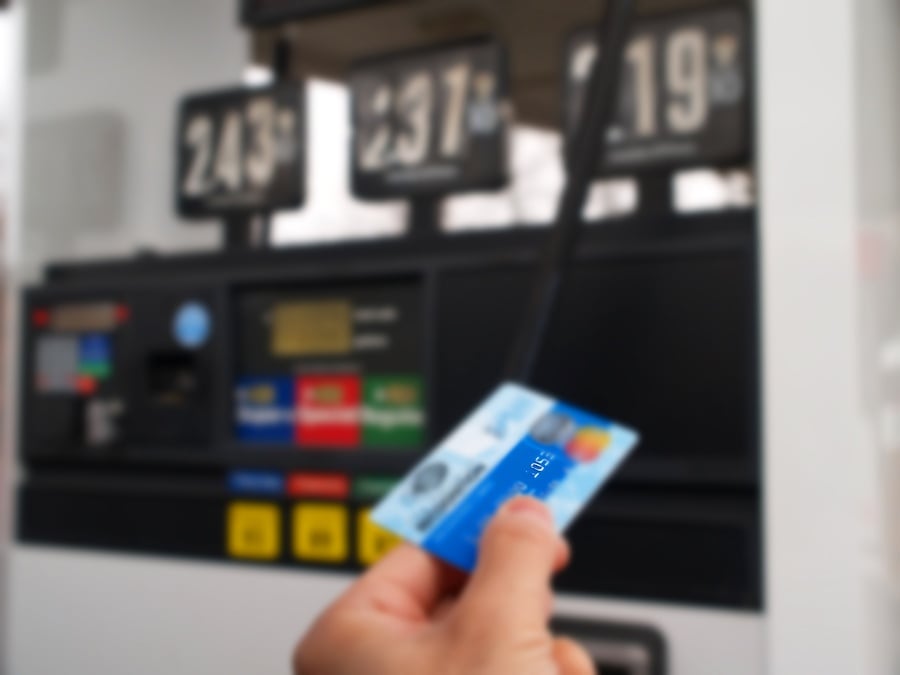How to Avoid Debit Card Fraud
If you have a bank account, you probably carry a debit card. Since you can use it just like a credit card, debit cards also come with risk. However,...
Manage your everyday finances with convenient accounts, flexible cards, and personalized service designed to fit your life.
At First Federal Bank, we offer flexible mortgage solutions for almost any situation, helping you secure the right financing for your dream home.
Business banking offers secure financial management, streamlined transactions, credit options, and tools to help businesses grow efficiently and sustainably.

 Paying with cash is no longer a common occurrence and checks are becoming a thing of the past. Consumers rely on credit and debit cards to make most payments.
Paying with cash is no longer a common occurrence and checks are becoming a thing of the past. Consumers rely on credit and debit cards to make most payments.
Recent technological financial developments have spawned the creation of cryptocurrency. Bitcoin is the most popular type and most promising replacement for traditional currency.
What Is Bitcoin?
Bitcoin is a digital system that allows users to make payments without a bank. It acts as digital gold that is “mined” through blockchain technology. With Bitcoin, people can make payments with a single-use address on their phones and computers. Bitcoin not only handles transactions quickly, it’s completely private and uses an encryption system that makes it difficult for others to hack.
How Does Bitcoin Work?
Bitcoin uses blockchain technology, which is like a shared public ledger for the Bitcoin network, similar to ledgers used in accounting for banks. The blockchain uses cryptography to enforce its integrity and chronological order of transactions.
Users will install a Bitcoin wallet. When people make a payment, the process creates a Bitcoin address, similar to an email address. They can then share this address with the person they are paying or receiving money from. However, you must only use it once to ensure privacy. Every time you make a new payment, Bitcoin generates another address.
Every payment has a private key to sign transactions. The receiving end also uses the key as mathematical proof that the payment came from the wallet owner. Once the owner signs the transaction, no one else can alter it. This may encourage businesses to accept bitcoins because transactions can’t be reversed. Mining is the process of confirming a transaction with a distributed consensus system and ensuring the bitcoin is not used in another transaction.
Mining adds transactions into a chain and then packs them into a block. This ensures payments are in chronological order and fit within specific cryptographic rules. These rules are important because it prevents anyone from adding new blocks or removing blocks. Because they are all connected, it makes it almost impossible to break into. Although all transactions are available to view, personal information is hidden and not attached to the transaction. This makes identity theft impossible.
Will Cryptocurrency Truly Be the New Form of Money?
Because of its advanced software and enhanced privacy, some have claimed that cryptocurrency could replace the need for traditional currency. However, there are risks if countries decide to move forward with Bitcoin.
Bitcoin is a decentralized currency system, which means the government has no control over it. This would lead to a freer economy because everyone could make transactions with a private system. Other activities usually create a digital footprint, but because of Bitcoin’s elaborate software, your payments are private, which helps protect your identity. The downside to this, however, is that since no one will know what transactions you are making, the currency value could fluctuate wildly.
Global Response to Cryptocurrencies
Although at present cryptocurrency exchanges are a tiny percentage of foreign exchange market volumes, they are being taken seriously enough that G20 finance ministers in March 2018 in Buenos Aires began to look into possible regulatory responses to the growing phenomenon.
Responses range from Sweden where it is predicted that cash will not be an available payment method in a few years to Russia considering restrictions on the use of private cryptocurrency and China which has banned financial institutions from handling crypto assets.
Given the reluctance of central banks to relinquish control over financial transactions
and the inherent volatility of Bitcoin, it will probably take many more modifications and experiments before cryptocurrency becomes a widely accepted method to digitize payments and eliminates the need for cash or credit cards.
CBC National Bank is constantly evolving with the latest trends in banking. We can help you manage your money with digital e-banking solutions allowing transfers (between accounts and to friends and family), viewing statements and transactions, and budgeting easy. Learn more about our online banking solutions here.

If you have a bank account, you probably carry a debit card. Since you can use it just like a credit card, debit cards also come with risk. However,...

‘Tis the season to be merry, right? Of course, that can be difficult to do when you’re straining your finances to accommodate this time of year....
Manage your accounts, make payments, and more.
Open an account with us.